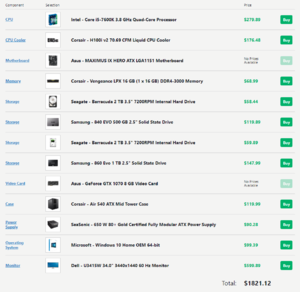I'm planning on getting a Ryzen 7 3800x to replace my i5 7600K. With that, comes a new motherboard.
Wondering what mobo has the best bang for the buck for this new processor. Ideally, I'd like something with plenty of USB 3 ports and one or two USB-C ports. I don't really want to break the bank on this though.
The rest of my hardware is the following, which I intend on reusing:

I don't need wifi on the mobo and, overall, I've been pretty happy with my Maximus IX Hero so might be looking for something similar.
I use my PC for gaming, video editing, photo editing, and general use.
Thanks!!
Wondering what mobo has the best bang for the buck for this new processor. Ideally, I'd like something with plenty of USB 3 ports and one or two USB-C ports. I don't really want to break the bank on this though.
The rest of my hardware is the following, which I intend on reusing:

I don't need wifi on the mobo and, overall, I've been pretty happy with my Maximus IX Hero so might be looking for something similar.
I use my PC for gaming, video editing, photo editing, and general use.
Thanks!!
![[H]ard|Forum](/styles/hardforum/xenforo/logo_dark.png)